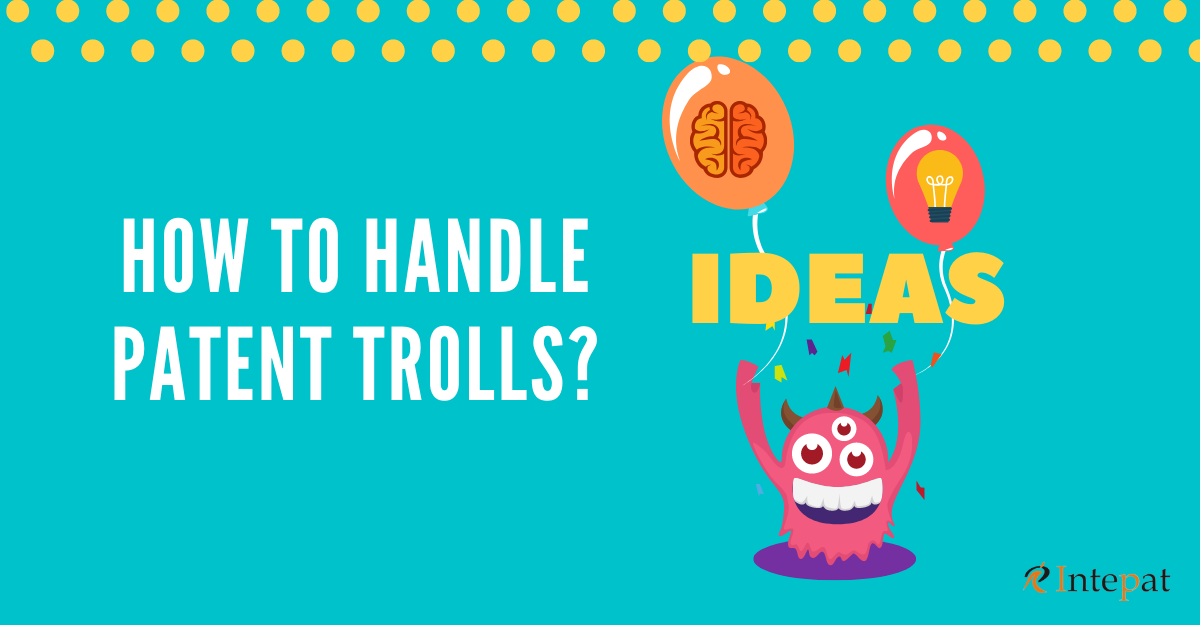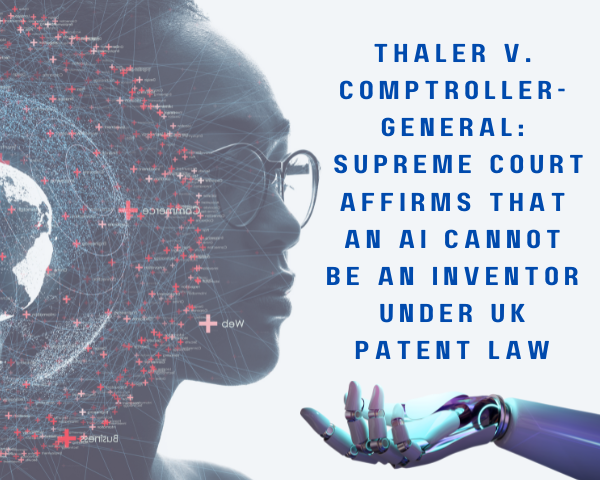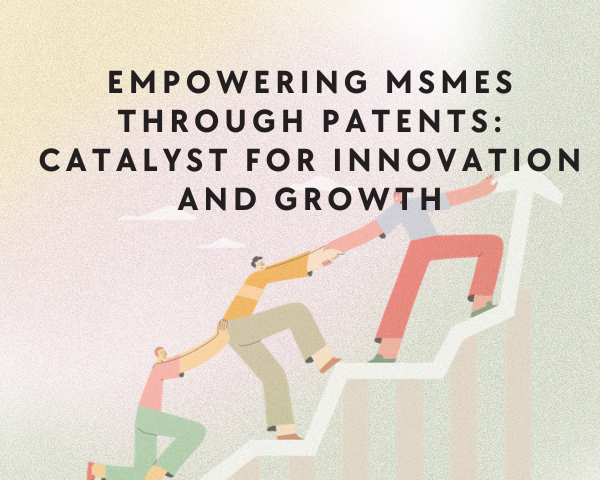MEANING
It is a fact that once the inventor of a patent receives a grant, his/her rights are protected as Intellectual Property Rights are considered exclusive rights and can reap the profits of his/her invention for a limited amount of time.[1] In simpler terms, no one else can tamper/interfere with the exclusive right, even with a license from the patentee.
The patent trolls however are entities that try owning and enforcing patents without putting the patented inventions to use. These trolls purchase/license patents with the objective of filing suits for infringement and they do not market nor manufacture the purchased patent, instead, they just collect the royalty and fees for licensing a patent.[2] In other words, a patent troll can be defined as an entity that has:
1. No intention of practicing a patent
2. No production objective instead acquires patents to gobble licensing fees
3. No usage of products
4. No sale of products
5. An objective to compel 3rd parties to buy licenses
In summation, a patent troll can be stated as an entity or a business whose objective/aim is to acquire patents for the purpose of compelling other parties to purchase licenses and take the licensing revenue for themselves. They are also called NPEs (Non-Performing Entities).
POSITION IN INDIA
The patent laws and regulations do not provide for specific legislation or a provision to deal with the patent trolls. But what it does provide is that the compulsion for a patent grant to be put to use in India is given u/s 146 (1)[3] of the patents act which expressly states that a controller might need a patentee to present information regarding the duration the patent has been commercially functioning in India, in other words, the patent has been put to use commercially or not. In India however, in case of a patent that is not put to use in India for a period of three years then compulsory licensing might be opted for. When it comes to the patent regime, patent trolls do not pose a serious threat as the laws control patent troll frauds fairly in India. But when one talks about start-ups and small scale businesses, it could have a progressively worse effect and outcome.
The Intellectual Property Appellate Board has given certain judgments recently regarding patent trolls in the case of Spice Mobiles Ltd. V. Somasundaram Ramkumar[4] wherein the board has revoked a patent u/s 57[5], 59[6] and 64 (1) (e) & (f)[7]. The lack of inventive step and novelty along with rejecting the amendment claims, IPAB ruled in favor of Spice Mobiles and imposed costs on the respondent for a frivolous filing along with revoking the patent and advised caution to the Controller General of Patents with regard to patent trolls.
COUNTERMEASURES TO PATENT TROLLING
i) Patent (Amendment) Act of 2005- It has countered the issues spread by patent trolls. The patent trolls can majorly only affect small scale businesses, start-ups, and technological patents. The aforementioned act prohibits troll activity on software.
ii) Pre-Grant Opposition and Post-Grant Opposition- The post-grant provision states that even though a grant has been awarded to the patent, it can still be challenged on various grounds such as Section 64 (1) (e) i.e. lack of novelty.
iii) Intellectual Property Appellate Board- This is a bifurcated administrative body/board that specifically or exclusively deals with Intellectual Property issues in India and is a very progressive step by India as it allows for quick delivery of judgments for cases which makes it economical as the time and cost both are saved. This helps the small scale businesses or start-ups and small inventors as it is an affordable legal remedy for them.
iv) Territorial Use of Patent- The patent grant once received has to be put for commercial use in the domestic arena. India’s unwillingness for imported patents and its favoritism towards the domestic application of the patent is backed u/s 83[8] of the act. It states that grants of patents are not only for the benefit of the patentee but the country as well.
v) Section 84 (7) (d) of the Patents Act, 1970- This section states the reasonable needs of the public are not satisfied if the patent is not being commercially used in the domestic arena of India or even if it is not being worked to an adequate or fullest extent.
CONCLUSION
In summation, there is a solid legal wall barring the patent trolls from deteriorating the patent regime majorly, mainly due to the patentability subject, pre/post-grant opposition policies, compulsory licensing, and the commercial domestic usage of the patent. One can deal with patent trolls specifically by seeking legal advice and not entering into agreements for licensing or purchasing patents with unverified parties.
[1] Bishwanath Prasad Radhey Shyam v. Hindustan Metal Industries, (1979) 2 SCC 511 at p. 517
[2] John M. Golden, Patent Trolls and Patent Remedies, 85 TEX. L. REV. 2111, 2162 (2007)
[3] Patents Act, 1970 § 146 (1)- Power Of Controller To Call For Information From Patentees
[4] Spice Mobiles Ltd. and Another v. Somasundaram Ramkumar and Others, ORA/17 of 2009/PT/CH & ORA/31 of 2009/PT/CH
[5] Patents Act, 1970 § 57- Amendment of application and specification or any document relating thereto before Controller
[6] Patents Act, 1970 § 59- Supplementary provisions as to amendment of application or specification
[7] Patents Act, 1970 § 64 (1) – Revocation of patents.
64 (1) (e)- No Novelty in Invention
64 (1) (f)- Obviousness of Invention
[8] Patents Act, 1970 § 83- General principles applicable to working of patented inventions
Section 83 (b)- are not granted merely to enable patentees to enjoy a monopoly for the importation of the patented article




